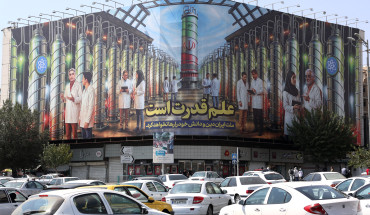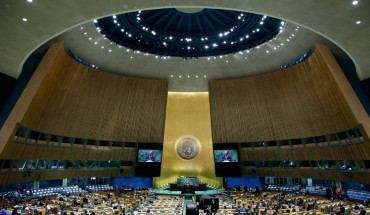The ongoing Saudi-led blockade of Qatar came as a surprise to the international community, including the European Union. When Saudi Arabia, the U.A.E., Egypt, and Bahrain cut ties with the Qatari monarchy, the E.U. found itself in a new and complex political reality. Though the intra-Gulf crisis had been simmering for quite a long time, it seems that the Europeans were not prepared for such a scenario. Ultimately, Europe must consider the severity of the current crisis’ potential diplomatic and economic consequences.
Politically, the blockade has further complicated an already multi-faceted European policy toward the region. Yet, contrary to the U.S. administration, the E.U. is unlikely to take sides in the ongoing dispute. All E.U. member states enjoy good relations with both Saudi Arabia and Qatar, and Brussels has deepened its bilateral cooperation with Qatar on regional issues, including the future reconstruction of Syria.
The E.U. perceives the G.C.C. crisis as a direct threat to its interests in the region. On June 9, soon after her meeting with Sheikh Mohammed bin Abdulrahman al-Thani, Qatar’s foreign minister, High Representative Federica Mogherini concluded: “We see a clear risk of the situation escalating further and spreading in an unpleasant and dangerous manner beyond the region of the Gulf, be it in Africa, or in Southeast Asia or in the Middle East.” Such a declaration sends a clear signal that the E.U. is highly concerned with the recent developments in the Persian Gulf. E.U. officials understand that unity within the G.C.C. is crucial in order to preserve stability in neighbouring regions.
New divisions in the Arab world may affect regional security, especially in the case of a direct or indirect military confrontation, which may result in the growth of terrorism and a new migration wave from the Middle East to Europe. Moreover, the current blockade could make it more difficult for the E.U. to cooperate with regional partners on vital security matters.
The current blockade should not have any significant implications for the future of E.U.-Qatari trade relations in general. In 2016, E.U. imports from Qatar were worth $5.8 billion, while exports were $10.75 billion. In comparison, the value of exports to Saudi Arabia was $38 billion and imports $21.3 billion. Yet in the case of Qatar, the structure of trade is more important than its turnover value, with natural gas playing a significant role.
The consumption of natural gas in Europe is growing. In 2015, natural gas accounted for 22 percent of Europe’s energy mix, a figure predicted to increase to 28 percent by 2035. However, Europe’s own resources are decreasing, and in order to avoid dependency on Russia, the E.U. has to diversify its gas supplies. Though not the cheapest, L.N.G. seems to be the most promising option.
In 2015 and 2016, Qatar was the largest exporter of L.N.G. to Europe. In addition, the nation was the fourth biggest natural gas provider in 2015, with a market share of ten percent. Some E.U. member states have even signed long-term contracts to import Qatari L.N.G. These countries include, but are not limited to: the U.K. (7 million mt per year), Belgium (1.8 million mt), Italy (4 million mt), Spain (1.9 million mt), and Poland (0.8 million mt). The good news is that nothing indicates that E.U. member states will experience any L.N.G. trade disruptions due to the current blockade, at least in the short-term. Although Egypt broke off diplomatic relations with Qatar, it still lets Qatari vessels through the Suez Canal. Yet, this situation may deteriorate if there is any significant worsening of the crisis.
Going forward, European politicians must search for any initiatives that might lead to a mutually beneficial compromise. The E.U. could play the role of middleman, and use its political and economic influence in the region to ease tensions and bring the parties together. For the time being, the E.U. has an advantage over the United States, as European diplomats talk to all sides directly involved in the crisis. The Trump administration thus far seems to lean toward the Saudi-led coalition.
On June 19, Mogherini declared that the E.U. was ready to support the Kuwaiti-led mediation efforts. Her message to the Qataris, Emiratis, and Saudis was clear—avoid any further escalation and engage in dialogue. At the same time, she emphasized that Brussels would opt for a solution negotiated within the region, rather than one imposed by outside powers. The sooner the G.C.C. member states resolve the problem, the better for Brussels. Unfortunately, recent developments prove that the process may take longer than expected. However, the good news for Europe is that the political and economic consequences of the ongoing blockade of Qatar will most likely be negligible in the short-term.
The Middle East Institute (MEI) is an independent, non-partisan, non-for-profit, educational organization. It does not engage in advocacy and its scholars’ opinions are their own. MEI welcomes financial donations, but retains sole editorial control over its work and its publications reflect only the authors’ views. For a listing of MEI donors, please click here.













